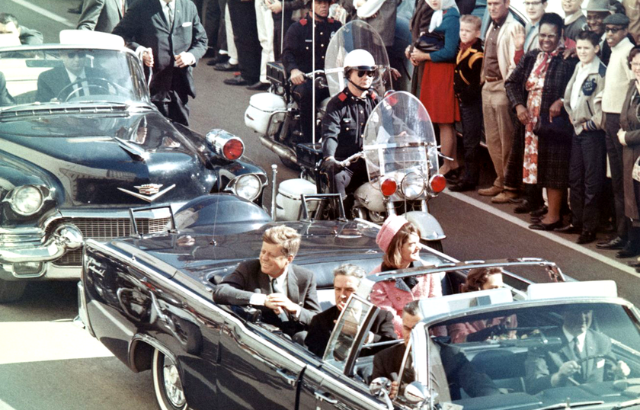JFK assassination 60 years on: seven experts on what to watch, see and read to understand the event and its consequences
Mark White, Professor of History,from the School of History has written for 'The Conversation' on the JFK assassination 60 years on.

John F. Kennedy and Jackie Kennedy in the limousine in Dallas minutes before the assassination. Walt Cisco/Dallas Morning News
November 22 2023 marks 60 years since US president John F. Kennedy was shot and killed as he rode in a motorcade through Dealey Plaza in downtown Dallas, Texas. The event shocked the world. But it also sparked the minds of filmmakers, authors, artists and conspiracy theorists. To commemorate the anniversary of one of the most famous assassinations in history, The Conversation asked seven experts to recommend a film, artwork, book, resource or place that can help to understand the event – and its myriad consequences.
Professor Mark White has recommended the film JFK(1991) written and directed by Oliver stone.
JFK (1991)
Historians of the assassination of John Kennedy divide into two camps. There are those who accept the official version provided by the Warren Commission – that a lone gunman, Lee Harvey Oswald, was responsible for the murder and was himself assassinated by Dallas nightclub owner Jack Ruby before he could face trial. And there are those who subscribe to one of the various conspiracy theories.
The most famous of those conspiracy theories emerged at the end of 1991 when the film JFK by maverick director Oliver Stone was released. That it became so widely discussed was due to the power of film, Stone’s bravura reputation (having won Oscars for his recent films on the Vietnam War) and the reception of JFK – which received eight Oscar nominations.
JFK told the true story of New Orleans district attorney Jim Garrison (Kevin Costner) who brought a case against businessman Clay Shaw for conspiracy in Kennedy’s murder. But Stone also used the film to develop the idea that the assassination represented a coup. In the film, generals and the CIA plot Kennedy’s murder as they were enraged with Kennedy’s Cold War policies, particularly with what Stone portrayed as his plan to withdraw from the Vietnam War.
Most significantly, the debate over the movie influenced politicians on Capitol Hill to pass the Assassination Records Collection Act, expediting the release of many hitherto classified documents on the assassination.
View the full article and what the other experts recommended. This article first appeared in 'The Conversation' on 20 November 2023.
Related items

20 March 2025

